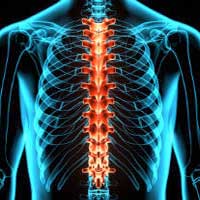 A new study shows the efficacy of carbon nanotube implants to restore motor functions and paves the way for a new therapeutic approach for spinal cord injuries.
A new study shows the efficacy of carbon nanotube implants to restore motor functions and paves the way for a new therapeutic approach for spinal cord injuries.
Monday, September 28, 2020
Spinal carbon nanotube implants restore motor functions
 A new study shows the efficacy of carbon nanotube implants to restore motor functions and paves the way for a new therapeutic approach for spinal cord injuries.
A new study shows the efficacy of carbon nanotube implants to restore motor functions and paves the way for a new therapeutic approach for spinal cord injuries.
Cooling clothing stays flexible even when frozen
 Researchers develop cooling clothing to improve human performance when exerting energy in warm environments.
Researchers develop cooling clothing to improve human performance when exerting energy in warm environments.
Discovery of large family of two-dimensional ferroelectric metals
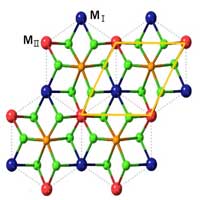 Scientists have discovered 16 novel ferroelectric metals from a large family (2,964) of 2D bimetal phosphates via data-driven machine learning and high-throughput first-principle calculations.
Scientists have discovered 16 novel ferroelectric metals from a large family (2,964) of 2D bimetal phosphates via data-driven machine learning and high-throughput first-principle calculations.
Borate-based passivation layers enable reversible calcium batteries
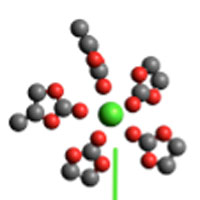 A new study has combined experimental and theoretical approaches to study the passivation layers formed on calcium metal electrodes and their influence on the reversible operation of calcium-based batteries.
A new study has combined experimental and theoretical approaches to study the passivation layers formed on calcium metal electrodes and their influence on the reversible operation of calcium-based batteries.
Avoiding environmental losses in quantum information systems
 New research has revealed how robust initial states can be prepared in quantum information systems, minimising any unwanted transitions which lead to losses in quantum information.
New research has revealed how robust initial states can be prepared in quantum information systems, minimising any unwanted transitions which lead to losses in quantum information.
New nanochannels make lithium batteries charge faster
 Researchers found out that by nanostructuring graphite, new 'paths' will be created for lithium ions. This makes the battery charge faster.
Researchers found out that by nanostructuring graphite, new 'paths' will be created for lithium ions. This makes the battery charge faster.
Speaking with neurons through nanostructured neural electrodes
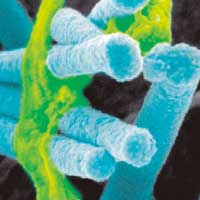 Researchers have designed improved flexible thin metal electrodes with nanotopography for a more intimate interfacing with neurons.
Researchers have designed improved flexible thin metal electrodes with nanotopography for a more intimate interfacing with neurons.
Noble metal clusters can enhance performance of catalysts and save resources
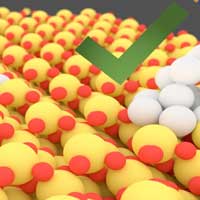 Lower-cost production thanks to optimized distribution of atoms.
Lower-cost production thanks to optimized distribution of atoms.
Terraced graphene for ultrasensitive magnetic field sensor
 Physicists have developed a sensitive two-dimensional (2-D) magnetic field sensor, which can potentially improve the detection of nanoscale magnetic domains for data storage applications.
Physicists have developed a sensitive two-dimensional (2-D) magnetic field sensor, which can potentially improve the detection of nanoscale magnetic domains for data storage applications.
Subscribe to:
Comments (Atom)
